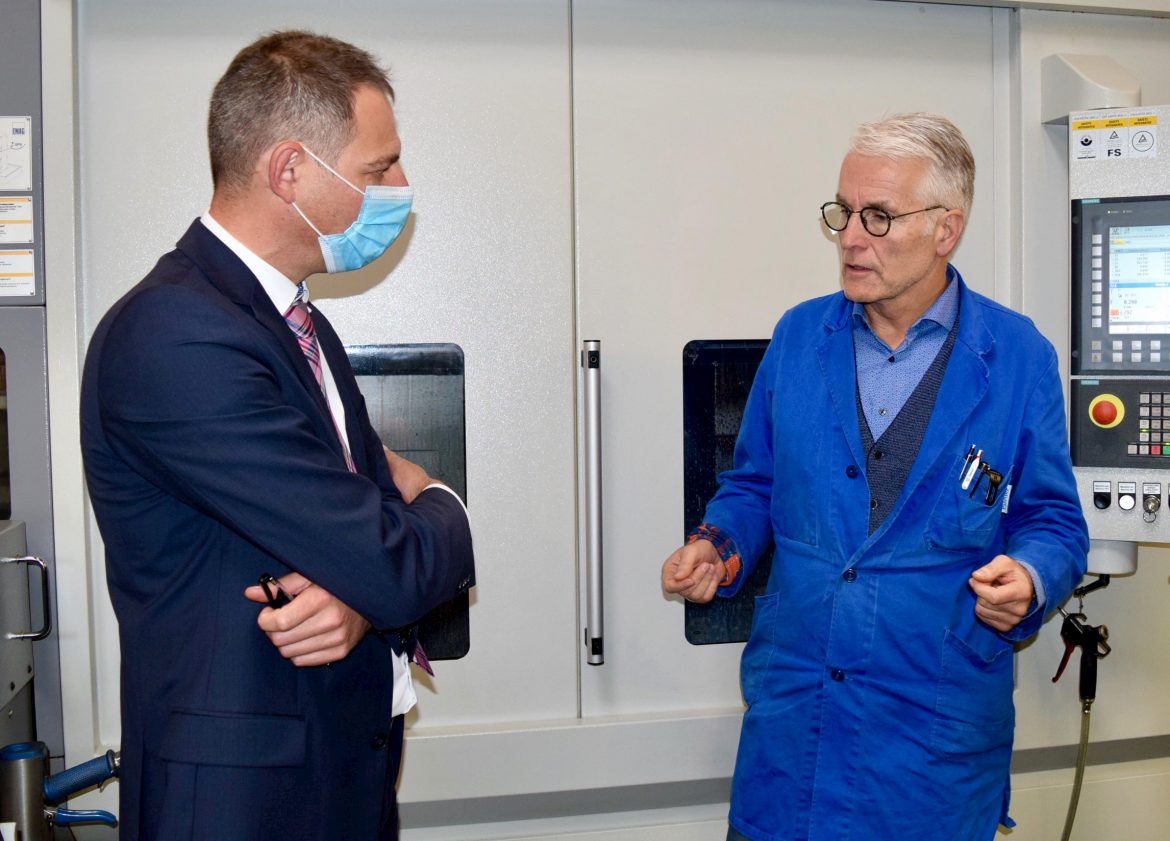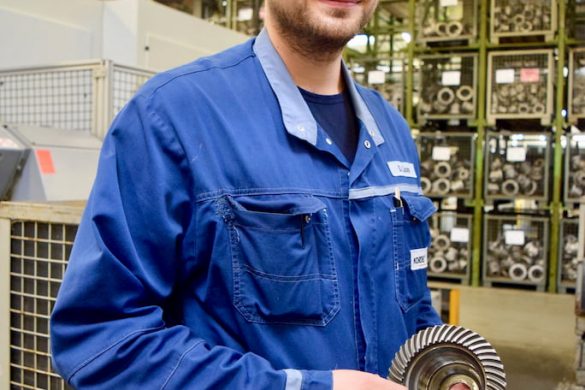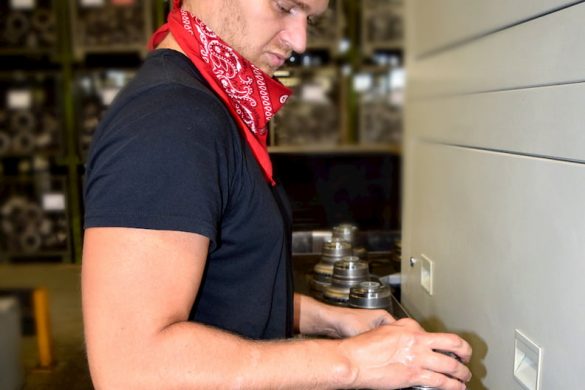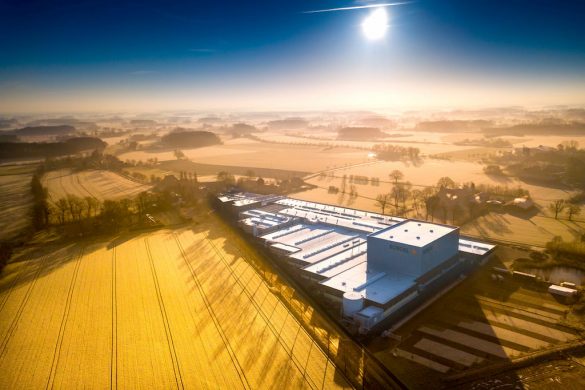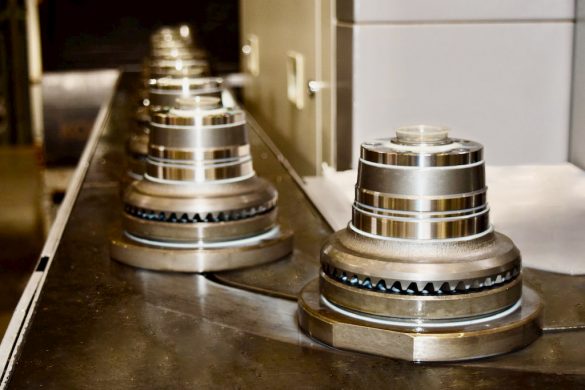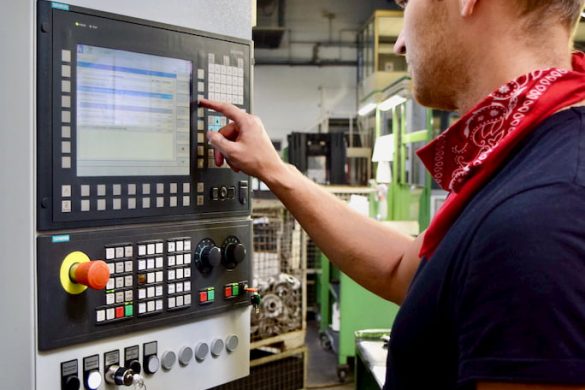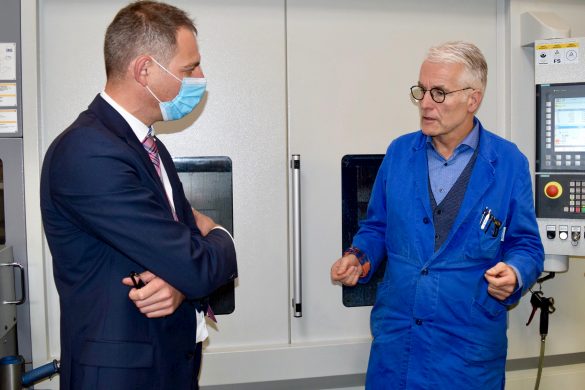For over 50 years, Kordel has developed a variety of drive systems and transmissions used in agricultural and construction equipment, as well as industrial trucks. This is a task that requires both robust machining and precision, simultaneously. The family-owned business with its headquarters in Dülmen near Münster, Germany relies on the competence of its employees, flat hierarchies and a high level of integration with a “state-of-the-art” machine system. For over 20 years, EMAG’s pick-up technology has played a major role at Kordel. More than 17 production solutions from the Southern German machine builders are used at the production sites in both Germany and Poland. The most recent additions are two VLC 200 GT turn-grind centers. Below is a conversation we had with the Kordel Managing Director, Johannes Kordel, about the success of his company, and the important part mechanical engineering has played in it.
Mr. Kordel, how would you explain the history of your company?
Johannes Kordel:
Kordel has a very long history! We were originally founded in 1879 as a simple blacksmith’s shop in Dülmen, Germany. Over the decades, we’ve continued to grow and change. We took a big leap in the 70’s when we started to produce more sprockets, which led to the production of the first complete gears and sprockets that we designed in house. With this, we can say that we have been active in the complex field of drivetrain technology for over 50 years. Internationally renowned vehicle manufacturers and mechanical engineering companies trust our transmission systems.
In your opinion, why has Kordel been so successful in the production of drive systems and transmissions?
At Kordel, we offer our customers the complete package with our expertise and high-level of vertical integration. We provide everything the customer needs, from one source for their transmissions. This means that we have our own design department that works closely with our production team, and can draw from ultra-modern standard machines. We always ensure that our newly developed parts can be produced efficiently. It is also extremely important to us that our approximately 1,000 employees can work independently, and each have their own high levels of expertise in their fields.
What role do the machines play in this?
The machines play a vital role! We continuously invest in our production technology, and currently have approximately 350 machines occupying our 60,000 square meters of floor space at our locations across Germany and Poland. Many of our solutions are automated, but manual loading must still be possible on most machines in order to produce even the smallest of batch sizes, economically. We manufacture all types of gears, in-house, and have our own hardening shop. Becoming more vertically integrated is almost impossible!
Why do you always choose EMAG pick-up technology?
I can answer this question with one simple phrase: best value for the money. This is especially true because EMAG machines have the automation already built into the compact production solution. Additionally, the pick-up technology is a perfect fit for our requirements and manufacturing processes. This makes it possible for one operator to easily monitor several machines, which allows us to increase productivity in a very targeted manner. Over the decades, we have seen that the solutions from EMAG are sustainable, and will work efficiently, long term. For me, personally, I don’t think it would benefit us to swap out an important partner, like EMAG, that we have built such a long-standing relationship of trust with.
You recently purchased two VLC 200 GT turn-grinding machines. What tipped the scales here?
The idea was simple: We wanted to continue to optimize the processing times for the finish machining of a variety of bevel and spur gears that are used for one-cylinder engines in industrial trucks. The integrated solution consists of hard turning and a subsequent grinding process that minimizes the use of personnel, while maintaining consistently high product quality. Since only a residual stock allowance of a few micrometers remains after hard rough turning, less material needs to be machined in subsequent grinding processes. This makes the subsequent grinding of the inner and outer contours for the transmission components shorter, and reduces the wear on the grinding wheel.
Are there any additional plans for this process?
We are currently working on implementing CBN grinding wheels with a ceramic bond, to help us increase tool life even more. In the end, this will lead to fewer necessary interventions by our team members. Overall, I can say that we’ve already achieved our goal of process optimization with consistent quality.
How is the machine set up and operated?
Set-up for these systems is quick and easy! The two machines in Germany and Poland exclusively produce different bevel and spur gears for transmissions. For this, set-up is simple and can be done in just a few steps. During production, the operator places the part on one of the rotating conveyor belts carrier prisms, and after machining, will remove it from there. During the machining process, the machine can operate autonomously for a long time – the entire process is very stable. Overall, we are very satisfied with our manufacturing systems from EMAG, proven by the fact that we continue to order from them!
